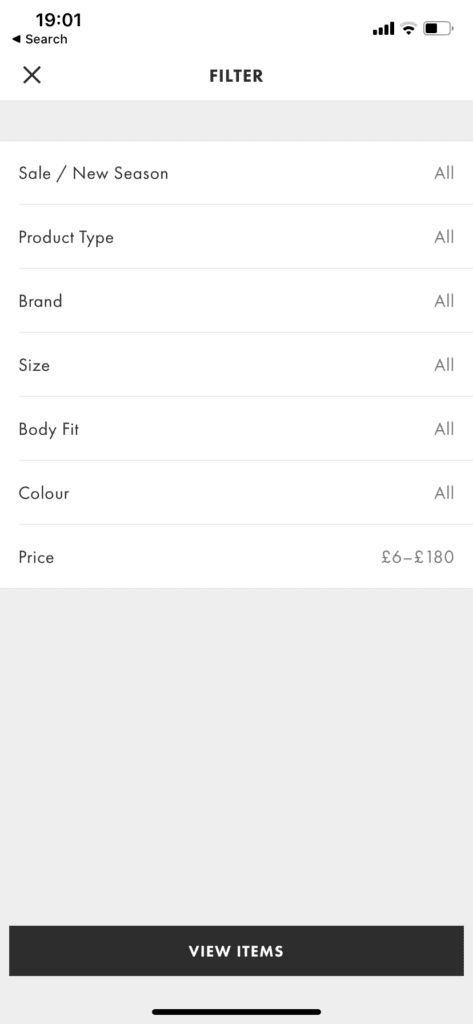How Are Mobile Apps Transforming The Ecommerce Industry
From education and social media to gaming and wellness, mobile apps exist for pretty much everything that we do in our daily lives in this day and age.
According to Google, consumers spend an average of three hours every day on mobile apps, while 70 percent of businesses state that the rise of mobile has urged them to transform the way they interact with customers.
Shopping, in particular, has changed completely. Now it is possible to choose and buy from a range of brands, from the comfort of our homes, in our pajamas!
Research shows that in 2017, prominent American retailers such as Target saw a 200 percent increase in their mobile app sales compared to last year. So how are apps reshaping the world of eCommerce? Let’s find out:
1. A calculated, no-frills browsing experience
Eighty-two percent of consumers favor mobile apps over mobile websites. The truth is that mobile apps provide essential information minus the irritating pop-ups and unnecessary CTA options that often clutter the layout of the webpage.
Many successful eCommerce brands include crisp product descriptions and attractive imagery that show consumers all they need to know about a product before buying it. For example, the placement of Sort and Filter options on the ASOS mobile app is excellent.

Consumers can quickly sift through the latest arrivals or apply filters to narrow their search. Moreover, they can save their favorite products and view them later by clicking on the heart-shaped button.

In addition, eCommerce mobile apps can also display product prices (including all taxes and extra charges) and suggest related products that the consumer might want to buy too. In a nutshell: mobile apps ensure a smooth browsing experience that is worth the download.
2. A direct marketing channel for consumer connect
Thanks to the ubiquity of mobile phone usage, consumers are now connected with their favorite brands, 24×7. Not only are mobile apps the go-to option for them, but also they use the former to gain information about the company and its latest offerings.
This offers an excellent opportunity for eCommerce brands to set up a direct marketing channel through their mobile apps. They can offer their target customers personalized recommendations, special rewards, discount coupons, and other information about their product lines based on buying patterns.
The easy curation of such varied content on mobile is one of the reasons why the average order value on apps is 140% higher than on mobile sites, as per RubyGarage.
3. Better brand recognition, higher conversions
Apart from product-related information, eCommerce mobile apps are a powerful tool for faster and efficient customer interaction. The apps allow consumers to rate products and provide feedback from their smartphones.
Ensuring remote readiness, brands can have customer care reps manage the live chat option on the app so that it is easier to connect with hassled customers any time of the day.
Ecommerce brands could also incorporate easy sharing options for social media platforms to nudge their customers to talk about them. Another critical function that the mobile app can perform is brand recognition.
By building a stylish, high-speed app with memorable graphics and colors, an eCommerce business can serve to help the brand stay on in the customer’s memory and thus increase the likelihood of the customer returning.
4. Push personalization
Mobile apps offer a degree of personalization in the customer experience that regular websites cannot always replicate. Apps make use of features such as pop-up notifications and dialogue boxes to speak to the consumers based on their browsing and buying history.
For instance, push notifications about wishlist items that were out-of-stock earlier but are available now can prompt customers to make the purchase immediately. Similar notifications about flash sales or reward points can also increase purchase rates.
Online lifestyle brand Macy’s once executed a push-based campaign during a Black Friday weekend to lure target customers into sampling products at Macy’s’ physical stores.
5. No more long and complicated checkout processes
Checkout processes that require multiple steps often compel consumers to quit their purchase midway – a phenomenon known as cart abandonment. Mobile apps help reduce the number of abandoned carts on eCommerce sites by giving consumers a simple one-click checkout process.
Apps can securely save details such as shipping addresses and payment information (debit/credit cards, mobile wallets, and net-banking) that can further reduce the time taken by consumers to finish the purchase. This boosts sales and also encourages repeat purchases.
6. Impressive eCommerce store branding
Today, having a wide product range alone is not enough to attract customers. Every second eCommerce business has similar products, which intensifies the competition. Deals and discounts are not enough either.
What helps an eCommerce store to stand out is the branding that a mobile app can offer. Given that most consumers browse or shop from their smartphones having an attractive and responsive mobile app is a significant plus-point for an eCommerce site looking to make a mark.
By adding individual touches to an app, such as a gamified rewards-earning process or unique graphics, the brand can quickly amp up the number of app downloads and, by extension, become top-of-mind for online shoppers.
7. Improvement in store search ranking
Search engines give high priority to a mobile app’s ranking in an app store. Through a process called app indexing, a mobile app can bring in a large volume of organic traffic for an eCommerce brand.
This is because consumers now have a second platform through which they can access the brand – namely, an app store such as those offered by Google Play and Apple – in addition to search engines such as Google, Bing, or Yahoo!.
Higher store search ranking leads to more browsing activity, more purchases, and thus higher sales revenue, along with greater brand recognition.
Summing it up
Do you know apps account for 90 percent of mobile media time with the other 10 percent spent on browsers? That shows consumers are exposed more through an app, which is why it is essential for eCommerce brands to have an app that promotes the convenience of shopping from anywhere, anytime.

Pratik Dholakiya is the Founder of Growfusely, a content marketing agency specializing in content & data-driven SEO. He regularly speaks at various conferences about SEO, Content Marketing, Entrepreneurship, and Digital PR. Pratik has spoken at 80th Annual Conference of Florida Public Relations Association, Accounting & Finance Show, Singapore, NextBigWhat’s UnPluggd, IIT-Bombay, SMX Israel, SEMrush Meetup, MICA, IIT-Roorkee, and other major events. As a passionate SEO & content marketer, he shares his thoughts and knowledge in publications like Search Engine Land, Search Engine Journal, Entrepreneur Magazine, Fast Company, The Next Web, YourStory, and Inc42 to name a few. Find him on Twitter @DholakiyaPratik
CS-Cart Multi-Vendor has a mobile application for customers and vendors. The mobile app for customers is free with Multi-Vendor Plus.
Yan Anderson is the Head of Content Marketing at CS-Cart with over 10 years of experience in the eCommerce industry. He's passionate about explaining complicated things in simple terms. Yan has expertise in building, running and growing eCommerce marketplaces. He loves to educate people about best practices, new technologies, and trends in the global eCommerce industry.

